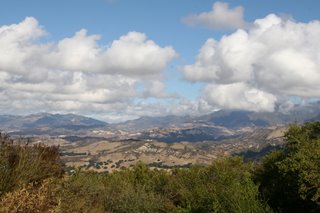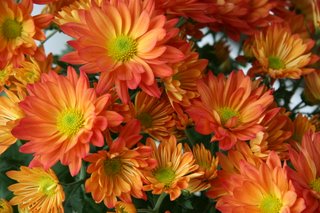
I am blessed to live on the south central coast of California, an area of spectacular beauty, with almost immediate access to the wilder, untamed parts of God’s creation. The ocean is south of us (which is almost always confusing to everyone!), the mountains are north (sort of), and a five minute drive in either direction can have you rhapsodizing about the power of the sea or the quiet beauty of a hillside path.
One thing we do not have, however, is a readily seen delineation between the seasons of the year. No snow (well, occasionally a bit of powdered sugar on the tops of the mountains), fewer and less dramatically colored leaves than many places in the more northern or eastern parts of our country, no extended period of dormancy from which spring elicits a sudden and startling awakening.
But if you live here long enough, you do begin to see the subtle differences that exist in our climate as the earth makes its way around the sun throughout the year. There are indeed colored leaves. They are beautiful and various. My yard is graced by a gingko tree, one of the longest-lived plant species on the planet, which gives us a spectacular show every year as its fan-shaped leaves morph from bright, lime green to a brilliant yellow-gold. Then our yard is literally showered with these beauties as they almost all drop off about two weeks before Christmas each year. There are some maple varieties that change color, lovely small eastern redbud trees whose dark red leaves do a reverse turn in the fall, fading to a soft rust, and the ubiquitous liquid amber, with its spiky pods and multi-colored leaves. True, there are no large piles of fallen leaves in most yards, but there are lovely varieties in color to be seen. Trouble is, there are so many evergreen varieties that it is sometimes hard to spot those colors amidst all that green. Perhaps the most significant change to be noted as the calendar changes from summer to fall is in the angle of the light as it falls on the earth. The misty, sometimes dreary days of summer foggishness give way to a clarity of air and sky that almost hurts the eye. The blues are deep, the clouds are large and lovely, the air begins to have just a little nip to it, especially as the afternoon shadows lengthen.
Perhaps the most significant change to be noted as the calendar changes from summer to fall is in the angle of the light as it falls on the earth. The misty, sometimes dreary days of summer foggishness give way to a clarity of air and sky that almost hurts the eye. The blues are deep, the clouds are large and lovely, the air begins to have just a little nip to it, especially as the afternoon shadows lengthen. The view from the top of Highway 154 in October was enough to suck the breath right out of your chest. And the vineyards in the adjacent valley were gloriously green and purple, loaded with large clusters of dark, ripe grapes. That’s a sure sign of fall in these parts, as the grape harvest gets into full swing.
The view from the top of Highway 154 in October was enough to suck the breath right out of your chest. And the vineyards in the adjacent valley were gloriously green and purple, loaded with large clusters of dark, ripe grapes. That’s a sure sign of fall in these parts, as the grape harvest gets into full swing. And of course, there are all those fall-blooming flowers in every garden and grocery store across the town. Chrysanthemums galore, hydrangeas, late-blooming roses, amaryllis, camellias. Beauty nestling in every crevice, it sometimes seems.
And of course, there are all those fall-blooming flowers in every garden and grocery store across the town. Chrysanthemums galore, hydrangeas, late-blooming roses, amaryllis, camellias. Beauty nestling in every crevice, it sometimes seems.
 Yes, the changes are subtle. But they are nonetheless real and quite beautiful to the discerning eye. I, for one, wouldn’t trade it for unending days of snow, sleet, and sludge. Although I do think the whole idea of ‘snow days’ is a grand one, and something we don’t have here in California. Sometimes that works against us, I think, creating a sort of drivenness to always be doing, doing something…because the weather is just so great. Sort of works against developing a true appreciation of Sabbath sometimes. Still, I’ll take the climate any day and try to be creative about re-thinking that Sabbath idea!
Yes, the changes are subtle. But they are nonetheless real and quite beautiful to the discerning eye. I, for one, wouldn’t trade it for unending days of snow, sleet, and sludge. Although I do think the whole idea of ‘snow days’ is a grand one, and something we don’t have here in California. Sometimes that works against us, I think, creating a sort of drivenness to always be doing, doing something…because the weather is just so great. Sort of works against developing a true appreciation of Sabbath sometimes. Still, I’ll take the climate any day and try to be creative about re-thinking that Sabbath idea!























